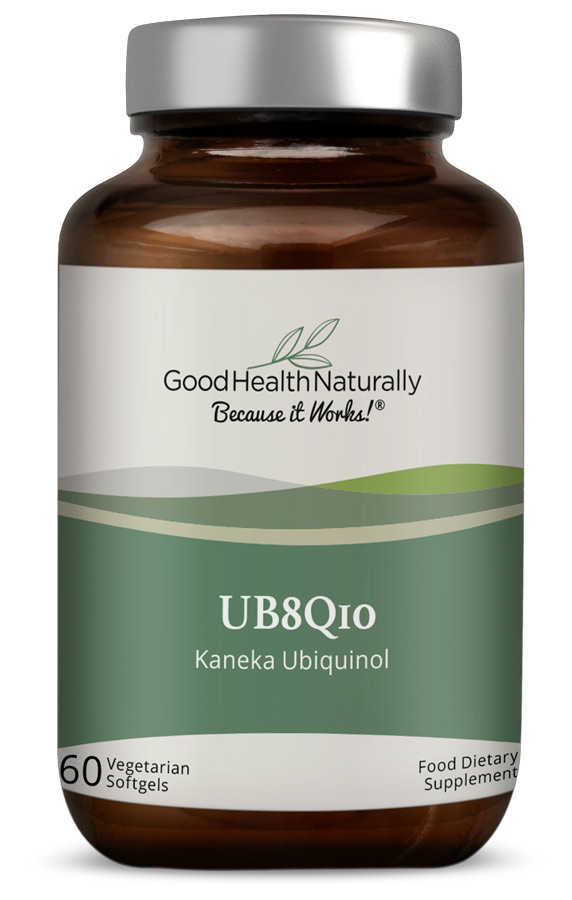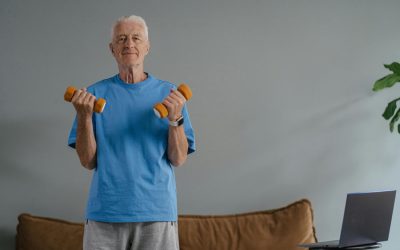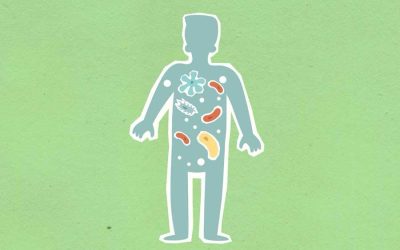Coenzyme Q10 (CoQ10) is a naturally occurring vitamin-like compound found in nearly every cell of the human body. It is particularly concentrated in the mitochondria, which are the energy powerhouses of our cells. Not only does it play a critical role in energy production, it also helps defend against oxidative stress.
As we age, our body’s natural production of CoQ10 begins to decline. By the age of 70, our CoQ10 levels can be almost half what they were in our youth. These reduced levels can potentially impact energy levels, heart function, reproductive health and even the vitality of our skin. In fact, a reduction in CoQ10 is believed to contribute to the degeneration of energy-demanding organs such as the liver, heart and skeletal muscles.
In this article, we’ll explore how CoQ10 supports overall health, from boosting energy and stamina to promoting heart health, brain function, skin vitality, fertility and more. Plus, how to choose the most effective form for supplementation.
Boost Energy & Stamina Naturally with CoQ10
Declining CoQ10 levels are linked to fatigue and reduced stamina. Replenishing cellular energy stores of CoQ10 helps restore physical endurance, improves cognitive performance, and fights age-related fatigue.
How CoQ10 Fights Oxidative Stress & Cellular Damage
Oxidative stress arises from an imbalance between free radicals and antioxidants, contributing to cellular damage and ageing. Free radicals can be highly reactive species that can damage biological molecules such as DNA, proteins, carbohydrates and lipids. They are a natural by-product of some of the body’s cellular reactions. Exposure to pollution, medications, alcohol, processed foods, and caffeine can increase the oxidative load, thus increasing the body’s antioxidant requirements.
CoQ10 helps to:
- Increase antioxidant enzyme activity, such as catalase and superoxide dismutase
- Support detoxification pathways
- Protect DNA, proteins, and lipids from oxidative damage
CoQ10 for Heart Health: Blood Pressure & Circulation
The heart has a high demand for energy and relies heavily on CoQ10. It supports heart function by boosting ATP production and reducing oxidative stress.
Studies show it helps:
- Improve blood vessel function
- Manage healthy blood pressure
- Support healthy circulation
- Reduce LDL oxidation and inflammation
A 2014 study published in the European Journal of Heart Failure showed a 42% reduction in major cardiovascular events with CoQ10 supplementation.
CoQ10 and Brain Function: Protecting Cognitive Health
Inflammation, oxidative stress and mitochondrial dysfunction are all factors linked to neurodegenerative diseases.
These include:
- Parkinson’s disease
- Alzheimer’s disease
- Huntington’s disease
CoQ10 can help maintain healthy mitochondrial activity and support long-term cognitive resilience.
CoQ10 for Anti-Ageing: Smoother, Firmer Skin
CoQ10 protects skin cells from oxidative damage, helping preserve collagen and elastin fibres, which may contribute to improved skin elasticity and firmness.
Clinical studies show that CoQ10, either applied topically or when taken as a supplement, can:
- Reduce wrinkles and fine lines
- Improve skin elasticity and firmness
- Enhance radiance and skin tone
How CoQ10 Supports Fertility in Men and Women
CoQ10 ensures that the reproductive cells have abundant energy reserves, which can help promote fertility and reproductive success.
CoQ10 supports energy-intensive cellular processes like:
- DNA replication
- Sperm motility
- Egg maturation and mitochondrial function
CoQ10 for Women: Egg Quality & IVF Support
As ovarian reserve and egg quality decline with age, CoQ10 has been shown to:
- Improve egg cell energy production
- Restore mitochondrial gene expression
- Support IVF outcomes by protecting against oxidative damage
CoQ10 for Men: Sperm Quality & Fertility
Stress and environmental toxins often impair sperm quality. But CoQ10:
- Enhances sperm motility and quality
- Protects mitochondrial function from oxidative damage
- Supports higher fertilisation success rates
CoQ10 Benefits During Menopause: Mood & Energy
Hormonal shifts during menopause can impact energy, mood and cardiovascular function.
CoQ10 may help ease menopausal symptoms by:
- Supporting energy metabolism
- Reducing oxidative stress
- Improving mood, sleep, and emotional balance
In a French study involving 200 menopausal women, 80% reported improvements in mood and stress levels within two months of supplementing with CoQ10 (Kaneka Ubiquinol™).
CoQ10 for Athletes: Energy, Strength & Recovery
Athletes supplementing with CoQ10 showed a significant increase in maximum power output, making it a go-to supplement for enhancing strength, stamina, and overall performance.
This is largely due to CoQ10’s dual action in the body. It helps to:
- Aid the generation of adenosine triphosphate (ATP), the main energy currency of cells, increasing the fuel available for muscles.
- Reduce oxidative stress and protect muscles from damage caused by the free radicals generated during exercise.
By supporting both energy production and muscle protection, Ubiquinol (the active form of CoQ10) is especially effective for athletic performance and recovery.
What Causes Low CoQ10?
Risk factors to know:
- Ageing, levels begin to decline in our 40s
- Vitamin deficiencies, especially B6
- Mitochondrial or genetic disorders
- Chronic illnesses like heart disease, diabetes or cancer
- Statin medications are known to inhibit the biosynthesis of CoQ10 as it is controlled by the same pathway which controls cholesterol synthesis.
- Oxidative stress from smoking, alcohol, sun exposure or poor diet
- Vegetarian or vegan diets may result in lower levels of CoQ10 in the body
Signs of a CoQ10 Deficiency
These may include:
- Fatigue and low stamina
- Muscle weakness
- Brain fog or poor concentration
- Chronic illness or oxidative stress conditions
How to Choose a CoQ10 Supplement
For best results, choose a high-quality Ubiquinol supplement, the active, more absorbable form of CoQ10. A typical daily dose ranges from 100–300mg, ideally taken with a meal containing healthy fats to enhance absorption. Look for clinically researched forms like Kaneka Ubiquinol™ for optimal bioavailability.
Ubiquinol vs Ubiquinone: Which CoQ10 is Best?
 CoQ10 supplements come in two forms:
CoQ10 supplements come in two forms:
- Ubiquinone (oxidised)
- Ubiquinol (reduced, active form)
With age, our ability to convert ubiquinone into ubiquinol declines. Ubiquinol is more bioavailable and effective for older adults.
Research Highlight:
A 2018 study in Frontiers in Physiology found Ubiquinol significantly enhanced energy production and mitochondrial function in ageing adults.
Conclusion: CoQ10 for Lifelong Vitality
CoQ10, especially in the form of Ubiquinol, is a foundational nutrient that supports heart health, energy, skin vitality, fertility and brain function. Whether seeking to boost energy, slow the effects of ageing, or support reproductive and cardiovascular wellness, research shows CoQ10 could help with cellular vitality and long-term well-being.




